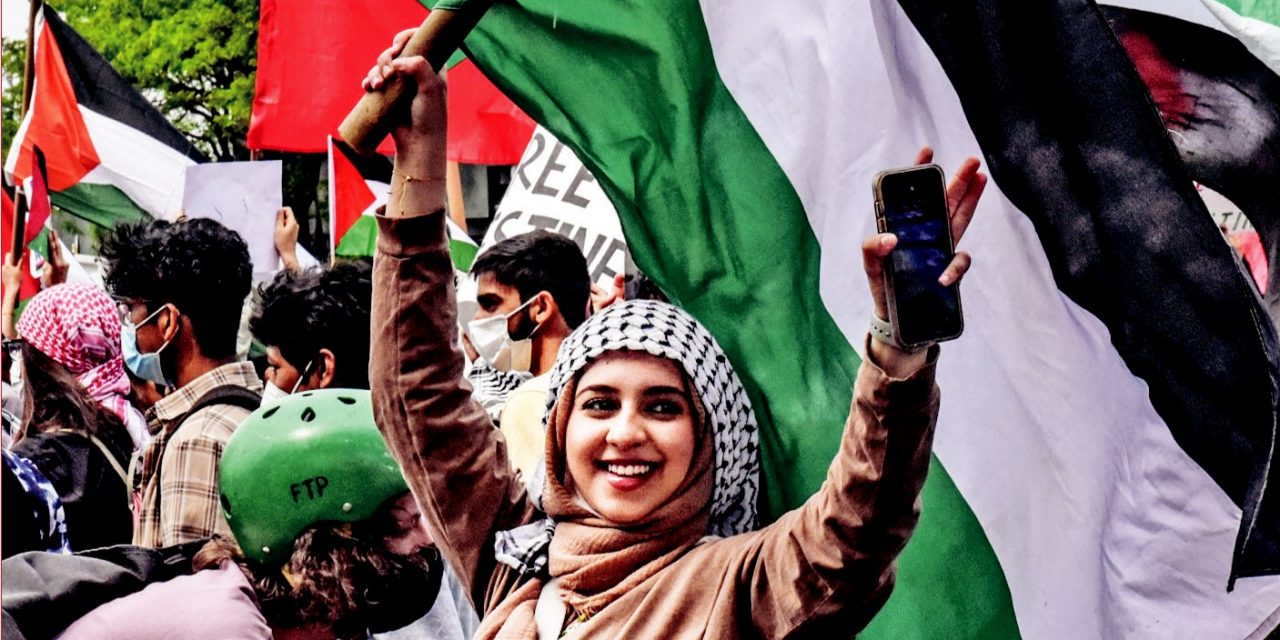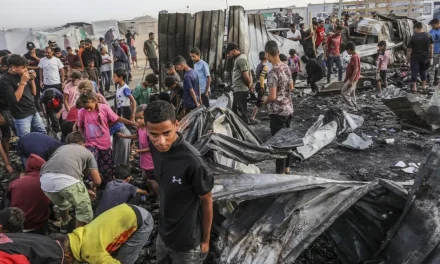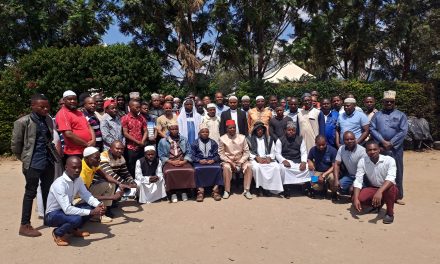
The EU is Not an Honest Broker Between Israel And Palestine.

In late June this year, the European Union announced that it would resume funding for two Palestinian NGOs — Al-Haq and the Palestinian Centre for Human Rights. It had suspended financial support in May 2021 after Israeli authorities supplied the European Commission with a dossier that claimed that six Palestinian NGOs, including Al-Haq, were funneling EU funds to the Popular Front for the Liberation of Palestine, which Israel describes as a “terrorist organization”.
A few months later the Israeli defence ministry extended that “terrorist” designation to these NGOs, too. EU authorities have found “no suspicions of irregularities and/or fraud”. Still, on August 18, Israeli forces raided the offices of seven Palestinian nonprofits in the occupied West Bank.
Be it in response to the unfounded allegations in the 2021 dossier, the raids or the all-too-frequent military onslaughts on Gaza, the EU has done little to hold Israel accountable besides ritual but ineffectual expressions of concern. In fact, the EU recently reiterated its commitment to developing closer diplomatic ties and agreed to resume meetings of the EU-Israel Association Council.
This is not a diplomatic lapse or misstep.
It’s important to understand that this impunity is guaranteed in the terms and conditions of EU-Israel relations, where political and economic relations are in no way contingent on the nature of the latter’s conduct towards Palestinians. As a result, Israel can willfully violate Palestinian rights, without fear of significant retribution from the EU, its biggest trade partner.
ALL CARROT, NO STICK
The EU-Israel Association Agreement was ratified by EU member states’ parliaments, the European Parliament and the Knesset and entered into force in 2000, after decades of evidence of Israeli violations of Palestinian rights. The agreement specifically mentions “human rights and democracy” as the basis of the association agreement. Political dialogue between Israel and the EU is meant to develop “mutual understanding and solidarity” and “convergence of positions on international issues”.
Yet there is nothing in the document that recognizes the struggle for Palestinian independence from Israel. Vague references to peace, democracy and human rights don’t do much when the “international issue” they relate to – the wider politics of Israeli settler colonial rule over Palestinian lands – is not specified.
In this sense, the association is all “carrot” and no “stick” and it is no surprise that Israel enthusiastically signed the Association Agreement in 1995.
Under the European Neighborhood Policy, the EU and Israel also signed the 2005 Action Plant which specifically addresses “the Israeli/Palestinian conflict” and the commitment of the EU, as a member of the Quartet — a group also including the United States, United Nations and Russia — to the two-state solution. Yet the burden of responsibility for promoting “peace and stability in the Middle East” doesn’t seem to fall on Israel.
The Action Plan does note that Israel must adhere to international law, minimize the impact of Israel’s “security and counterterrorism measures” on civilians, ensure the safe movement of “civilians and goods” and safeguard “property, institutions and infrastructure”. There are also generic references to “improving economic and social conditions” of all populations. However, the overall purpose is not driven by Palestinian rights, sovereignty or liberation.
WHO IS RESPONSIBLE FOR PEACE? NOT ISRAEL
Rather, the insinuation is that Palestinians are the problem and a hindrance to securing peace and stability. Under the Action Plan, Israel and the EU are responsible for supporting the Palestinian Authority (PA) in its efforts to “dismantle all terrorist capabilities and infrastructure”and put an end to “terrorist activities and violence”.
Israel and the EU are also responsible for supporting and facilitating good governance, transparency, accountability, democratic reform and consolidation of security services in the PA. In its conception of the Middle East Peace Process, the EU does underline its commitment to the two-state solution. However, while promising to make security arrangements aimed at ensuring Palestinian sovereignty, the EU also refers to its desire that such a state is “based on the rule of law and respect of human rights”.
The subtext here is that the lack of sovereignty is somehow a consequence of Palestinian failure to assuage Israel’s security concerns.
THE EU IS NOT AN HONEST STAKEHOLDER
Following global outrage regarding the recent Israeli raids on the offices of Palestinian NGOs, Brussels decided to adopt a tougher tone. “These actions are not acceptable,” Josep Borrell, the EU High Representative for Foreign Affairs and Security Policy said.
Yet even now, the EU’s concern appears limited to words. In reality, the legal and political basis for EU-Israel relations does not allow for any recognition of Israel’s role as a colonial occupier. The bloc of 27 nations has shown no desire to change that.
The result: the EU is not an honest or effectual stakeholder in the struggle for Palestinian sovereignty and independence. On the contrary, its approach allows Israel to operate with complete impunity human rights be damned.

































